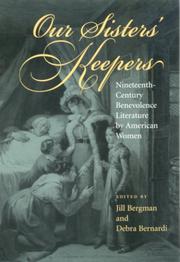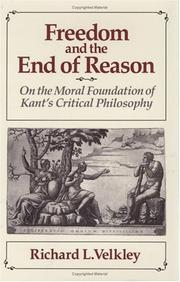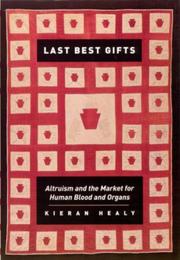| Listing 1 - 10 of 13 | << page >> |
Sort by
|
Book
ISBN: 1626562016 162656213X 9781626562011 9781626562134 1322070083 9781322070087 9781626560956 1626560951 Year: 2014 Publisher: San Francisco : Berrett-Koehler Publishers, Inc.,
Abstract | Keywords | Export | Availability | Bookmark
 Loading...
Loading...Choose an application
- Reference Manager
- EndNote
- RefWorks (Direct export to RefWorks)
In this book, Seth Adam Smith expands on the philosophy behind his extraordinarily popular blog post "Marriage Isn't for You"-which received over 30 million hits and has been translated into over twenty languages-and shares how living for others can enrich every aspect of your life, just as it has his. With a mix of humor, candor, and compassion, he reveals how, years before his marriage, his self-obsession led to a downward spiral of addiction and depression, culminating in a suicide attempt at the age of twenty. Reflecting on the love and support he experienced in the aftermath, as well as o
Selfishness. --- Benevolence. --- Kindness. --- Conduct of life.
Book
ISBN: 0585346925 1280427965 0198024134 0195346769 142378507X 9780198024132 0197730949 Year: 2023 Publisher: Oxford : Oxford University Press,
Abstract | Keywords | Export | Availability | Bookmark
 Loading...
Loading...Choose an application
- Reference Manager
- EndNote
- RefWorks (Direct export to RefWorks)
Murphy argues that the problem with utilitarianism is not that it requires too much sacrifice, but rather in our nonideal world of partial compliance it unfairly requires those who do comply to shoulder the shares of the noncompliers as well.
Benevolence. --- Social ethics. --- Utilitarianism. --- Ethics --- Hedonism --- Philosophy --- Social problems --- Sociology --- Conduct of life
Book
ISBN: 1526146371 152615207X 1526146398 9781526146397 9781526146373 9781526146380 Year: 2020 Publisher: Manchester
Abstract | Keywords | Export | Availability | Bookmark
 Loading...
Loading...Choose an application
- Reference Manager
- EndNote
- RefWorks (Direct export to RefWorks)
Most people now associate philanthropy with donations of money by the rich to good causes. It has not always been so. The Reputation of Philanthropy explores how our modern definition came about and asks why praise for philanthropy and philanthropists has always been matched by criticism. Were we really capable of loving all of humankind? Was it possible that what was thought of as philanthropy might create a dependency class and do more harm than good? Was it sensible to focus so much on far away places to the neglect of the poor at home? Deeply researched, timely and accessible, this book will inform today's thinking about the role that philanthropy should play in British society. The criticisms of philanthropy in the past have telling echoes in the present.
Charities --- History. --- Benevolence. --- Capitalism. --- Charity. --- Civil Society. --- Enlightenment. --- Evangelicalism. --- National Identity. --- Philanthropy. --- Political Economy. --- Romanticism.
Book
ISBN: 069163906X 1400854067 0691611025 9781400854066 Year: 2014 Publisher: Princeton, NJ
Abstract | Keywords | Export | Availability | Bookmark
 Loading...
Loading...Choose an application
- Reference Manager
- EndNote
- RefWorks (Direct export to RefWorks)
Donald VanDeVeer probes the moral complexities of the question: under what conditions is it permissible to intervene invasively in the lives of competent persons--for example, by deception, force, or coercive threat--for their own good? In a work with broad significance for law, public policy, professional-client relations, and private interactions, he presents a theory of an autonomy-respecting" paternalism.Originally published in 1986.The Princeton Legacy Library uses the latest print-on-demand technology to again make available previously out-of-print books from the distinguished backlist of Princeton University Press. These editions preserve the original texts of these important books while presenting them in durable paperback and hardcover editions. The goal of the Princeton Legacy Library is to vastly increase access to the rich scholarly heritage found in the thousands of books published by Princeton University Press since its founding in 1905.
Benevolence. --- Paternalism --- Respect for persons. --- Conduct of life --- Parentalism --- Social classes --- Social control --- Social systems --- Persons --- Moral and ethical aspects.

ISBN: 0817351930 9780817381660 081738166X 9780817314675 0817314679 9780817351939 0817314679 Year: 2005 Publisher: Tuscaloosa University of Alabama Press
Abstract | Keywords | Export | Availability | Bookmark
 Loading...
Loading...Choose an application
- Reference Manager
- EndNote
- RefWorks (Direct export to RefWorks)
American culture has long had a conflicted relationship with assistance to the poor. Cotton Mather and John Winthrop were staunch proponents of Christian charity as fundamental to colonial American society, while transcendentalists harbored deep skepticism towards benevolence in favor of Emersonian self-reliance and Thoreau's insistence on an ascetic life. Women in the 19th century, as these essays show, approached issues of benevolence far differently than their male counterparts, consistently promoting assistance to the impoverished, in both their acts and their writings. <
American literature --- 19th century --- History and criticism --- Literature and society --- United States --- History --- Women and literature --- Women authors --- Benevolence in literature --- Charity in literature --- Poor --- Poor in literature. --- Poverty in literature. --- Charity in literature. --- Benevolence in literature. --- English literature --- Agrarians (Group of writers) --- History and criticism.
Book
ISBN: 9780199245482 0199245487 1306300185 0191838276 0191744964 0191508845 9780191508844 9780191744969 Year: 2013 Publisher: Oxford
Abstract | Keywords | Export | Availability | Bookmark
 Loading...
Loading...Choose an application
- Reference Manager
- EndNote
- RefWorks (Direct export to RefWorks)
A volume which explores in detail Seneca's 'De Beneficiis'. Divided into three sections, it looks at the historical and philosophical context of the work, its relation to Seneca's other texts, and concludes with a detailed synopsis of each book, accompanied by notes in commentary form.
Ethics, Ancient. --- Conduct of life --- Benevolence --- Morale ancienne --- Morale pratique --- Bienveillance --- Early works to 1800. --- Ouvrages avant 1800 --- Seneca, Lucius Annaeus, --- Criticism, Textual. --- Criticism and interpretation. --- Society in literature. --- Seneca, Lucius Annaeus --- Seneca --- Annaeus Seneca, Lucius, --- Seneca, Annaeus, --- Seneca, --- Seneca, L. A. --- Seneca, Lucio Anneo, --- Seneka, --- Seneka, L. Annėĭ, --- Sénèque, --- סנקא, לוציוס אנאוס --- Pseudo-Seneca
Book
ISBN: 1479859540 9781479859542 9781479854530 1479854530 Year: 2014 Publisher: New York, NY
Abstract | Keywords | Export | Availability | Bookmark
 Loading...
Loading...Choose an application
- Reference Manager
- EndNote
- RefWorks (Direct export to RefWorks)
“Ithas ever been the boast of the Jewish people, that they support their own poor,”declared Kentucky attorney Benjamin Franklin Jonas in 1856. “Their reasons arepartly founded in religious necessity, and partly in that pride of race andcharacter which has supported them through so many ages of trial andvicissitude.” In That Pride of Race andCharacter, Caroline E. Light examines the American Jewish tradition ofbenevolence and charity and explores its southern roots.Light provides a critical analysis ofbenevolence as it was inflected by regional ideals of race and gender, showinghow a southern Jewish benevolent empire emerged in response to the combinedpressures of post-Civil War devastation and the simultaneous influx of easternEuropean immigration. In an effort to combat the voices of anti-Semitism andnativism, established Jewish leaders developed a sophisticated and cutting-edgenetwork of charities in the South to ensure that Jews took care of thoseconsidered “their own” while also proving themselves to be exemplary whitecitizens. Drawing from confidential case files and institutional records fromvarious southern Jewish charities, the book relates how southern Jewish leadersand their immigrant clients negotiated the complexities of “fitting in” in aplace and time of significant socio-political turbulence. Ultimately, thesouthern Jewish call to benevolence bore the particular imprint of the region’sracial mores and left behind a rich legacy.
Jewish way of life. --- Kindness. --- Charity. --- Benevolence. --- Jews --- Hebrews --- Israelites --- Jewish people --- Jewry --- Judaic people --- Judaists --- Ethnology --- Religious adherents --- Semites --- Judaism --- Conduct of life --- Alms and almsgiving --- Affection --- Jewish life --- Religious life --- Way of life, Jewish --- Jewish ethics --- Commandments (Judaism) --- Politics and government --- Social life and customs --- Customs and practices
Periodical
Abstract | Keywords | Export | Availability | Bookmark
 Loading...
Loading...Choose an application
- Reference Manager
- EndNote
- RefWorks (Direct export to RefWorks)
Charities --- Fund raising --- Benefactors --- Gifts --- Philanthropists --- Benefactors. --- Charities. --- Gifts. --- Philanthropists. --- Alms and almsgiving --- Benevolent institutions --- Charitable institutions --- Endowed charities --- Institutions, Charitable and philanthropic --- Philanthropy --- Poor relief --- Private nonprofit social work --- Relief (Aid) --- Social welfare --- Patrons (Benefactors) --- Fundraising --- Money raising --- Prospecting (Fund raising) --- Altruists --- Humanitarians --- Donations --- Presents --- Donors (Benefactors) --- Societies, etc. --- Associations, institutions, etc. --- Poor --- Social service --- Endowments --- Benevolence --- Fund raisers (Persons) --- Generosity --- Manners and customs --- Free material --- Persons --- Services for --- Finance

ISBN: 1306428580 022615758X 9780226157580 9780226852607 0226852601 9781306428583 Year: 2014 Publisher: Chicago University of Chicago Press
Abstract | Keywords | Export | Availability | Bookmark
 Loading...
Loading...Choose an application
- Reference Manager
- EndNote
- RefWorks (Direct export to RefWorks)
In Freedom and the End of Reason, Richard L. Velkley offers an influential interpretation of the central issue of Kant's philosophy and an evaluation of its position within modern philosophy's larger history. He persuasively argues that the whole of Kantianism-not merely the Second Critique-focuses on a "critique of practical reason" and is a response to a problem that Kant saw as intrinsic to reason itself: the teleological problem of its goodness. Reconstructing the influence of Rousseau on Kant's thought, Velkley demonstrates that the relationship between speculative philosophy and practical philosophy in Kant is far more intimate than generally has been perceived. By stressing a Rousseau-inspired notion of reason as a provider of practical ends, he is able to offer an unusually complete account of Kant's idea of moral culture.
Teleology. --- Reason. --- Liberty. --- Civil liberty --- Emancipation --- Freedom --- Liberation --- Personal liberty --- Democracy --- Natural law --- Political science --- Equality --- Libertarianism --- Social control --- Mind --- Intellect --- Rationalism --- Design in natural phenomena, Study of --- Final cause --- Philosophy --- Causation --- Evolution --- Necessity (Philosophy) --- Kant, Immanuel, --- Kant, Immanuel --- Kant, I. --- Kānt, ʻAmmānūʼīl, --- Kant, Immanouel, --- Kant, Immanuil, --- Kʻantʻŭ, --- Kant, --- Kant, Emmanuel, --- Ḳanṭ, ʻImanuʼel, --- Kant, E., --- Kant, Emanuel, --- Cantơ, I., --- Kant, Emanuele, --- Kant, Im. --- קאנט --- קאנט, א. --- קאנט, עמנואל --- קאנט, עמנואל, --- קאנט, ע. --- קנט --- קנט, עמנואל --- קנט, עמנואל, --- كانت ، ايمانوئل --- كنت، إمانويل، --- カントイマニユエル, --- Kangde, --- 康德, --- Kanṭ, Īmānwīl, --- كانط، إيمانويل --- Kant, Manuel, --- freedom, reason, kant, philosophy, ethics, morality, goodness, virtue, second critique, rousseau, teleology, liberty, enlightenment, individualism, equality, justice, benevolence, honor, passion, spontaneity, will, perfection, history, nature, nonfiction, modernity, humanity, epistemology, philosopher, rights, society, morals, community. --- Liberty --- Reason --- Ethics, Modern --- Teleology --- Kant, Immanuel, - 1724-1804 --- Rousseau, Jean-Jacques, - 1712-1778 --- Finalité --- Raison --- Liberté

ISBN: 0226322378 0226322351 9780226322353 9780226322377 9786612738432 0226322386 1282738437 9780226322384 9781282738430 661273843X Year: 2006 Publisher: Chicago, Ill. University of Chicago Press
Abstract | Keywords | Export | Availability | Bookmark
 Loading...
Loading...Choose an application
- Reference Manager
- EndNote
- RefWorks (Direct export to RefWorks)
More than any other altruistic gesture, blood and organ donation exemplifies the true spirit of self-sacrifice. Donors literally give of themselves for no reward so that the life of an individual-often anonymous-may be spared. But as the demand for blood and organs has grown, the value of a system that depends solely on gifts has been called into question, and the possibility has surfaced that donors might be supplemented or replaced by paid suppliers. Last Best Gifts offers a fresh perspective on this ethical dilemma by examining the social organization of blood and organ donation in Europe and the United States. Gifts of blood and organs are not given everywhere in the same way or to the same extent-contrasts that allow Kieran Healy to uncover the pivotal role that institutions play in fashioning the contexts for donations. Procurement organizations, he shows, sustain altruism by providing opportunities to give and by producing public accounts of what giving means. In the end, Healy suggests, successful systems rest on the fairness of the exchange, rather than the purity of a donor's altruism or the size of a financial incentive.
Procurement of organs, tissues, etc. --- Transplantation of organs, tissues, etc. --- Tissue banks --- Dons d'organes, de tissus, etc. --- Dons d'organes, de tissus, etc --- Greffe (Chirurgie) --- Banques de tissus --- Economic aspects --- Gestion --- Aspect économique --- Altruism -- United States. --- Blood Banks -- economics -- United States. --- Blood Banks -- organization & administration -- United States. --- Procurement of organs, tissues, etc - Economic aspects - United States. --- Procurement of organs, tissues, etc. -- Economic aspects -- United States. --- Tissue and Organ Procurement -- economics -- United States. --- Tissue Banks -- economics -- United States. --- Tissue Banks -- organization & administration -- United States. --- Tissue banks - United States. --- Tissue banks -- United States. --- Tissue Donors -- United States. --- Transplantation of organs, tissues, etc - Economic aspects - United States. --- Transplantation of organs, tissues, etc. -- Economic aspects -- United States. --- Procurement of organs, tissues, etc --- Transplantation of organs, tissues, etc --- Health Services --- Social Behavior --- Biological Specimen Banks --- Persons --- Altruism --- Tissue Banks --- Tissue Donors --- Tissue and Organ Procurement --- Blood Banks --- Health Facilities --- Behavior --- Named Groups --- Health Care Facilities, Manpower, and Services --- Health Care --- Behavior and Behavior Mechanisms --- Psychiatry and Psychology --- Surgery & Anesthesiology --- Transplantation of Organs & Tissues --- Health & Biological Sciences --- #SBIB:316.334.3M30 --- #SBIB:316.334.3M50 --- Medische sociologie: gezondheidsgedrag --- Organisatie van de gezondheidszorg: algemeen, beleid --- Aspect économique --- Banks, Organ --- Banks, Tissue --- Banks, Transplant --- Organ banks --- Transplant banks --- Medical transplantation --- Organ transplantation --- Organ transplants --- Organs (Anatomy) --- Surgical transplantation --- Tissue transplantation --- Tissues --- Transplants, Organ --- Organ procurement (Surgery) --- Tissue procurement (Surgery) --- Transplantation --- Biobanks --- Health facilities --- Preservation of organs, tissues, etc. --- Surgery --- Transplant surgery --- Transplantation surgery --- Philosophical anthropology --- Professional ethics. Deontology --- Human medicine --- altruism, black market, organ donation, capitalism, commodification, human body, blood donors, gifts, benevolence, incentives, sale, sacrifice, ethics, europe, donations, procurement, organizations, red cross, fairness, justice, sociology, politics, nonfiction, economics, medicine, healthcare, transfusion, transplant, collection, exchange, tissues.
| Listing 1 - 10 of 13 | << page >> |
Sort by
|

 Search
Search Feedback
Feedback About UniCat
About UniCat  Help
Help News
News